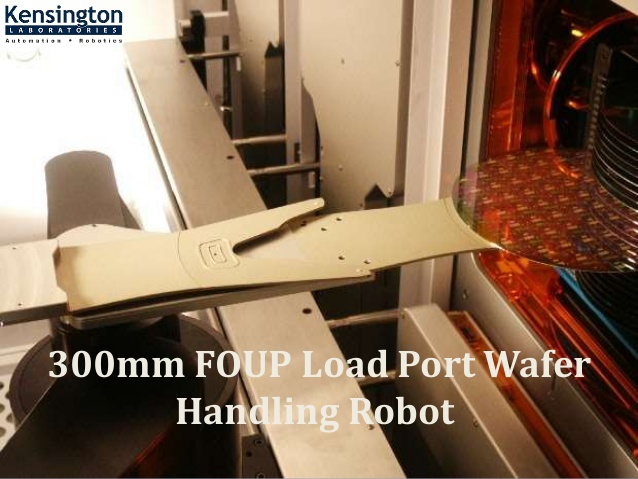Precision and Speed: Optimizing Wafer Automation with Advanced EFEMs
Semiconductor manufacturing – the backbone of the modern digital world – operates on a microscopic scale. The slightest deviation in the fabrication of delicate silicon wafers can compromise the performance and yield of countless electronic devices.
As the insatiable demand for greater computing power and smaller form factors intensifies, optimizing speed and absolute precision during wafer handling has become critical. Let's explore how advanced EFEMs are pushing the boundaries of precision and speed in wafer automation.
What is an EFEM?
An EFEM (Equipment Front-End Module) is the entrance point for wafers into advanced semiconductor manufacturing machines. It functions as a tightly regulated mini-environment, protecting delicate wafers from contamination while maintaining ideal atmospheric conditions during loading, unloading, and temporary storage.
EFEMs work in perfect synergy with wafer-handling robots or automated material handling systems (AMHS) ensuring a seamless and incredibly efficient workflow.
Why are Advanced EFEMs Important?
Let's delve into the key reasons why upgrading to advanced EFEMs is a strategic move for semiconductor manufacturers:
Enhanced Precision:
Next-generation EFEMs incorporate refined mechanics and intelligent sensors for ultra-precise wafer alignment. This meticulous accuracy prevents costly mishaps like wafer breakage during transport and ensures wafers are positioned perfectly within the processing tools. Top-tier EFEMs minimize errors, safeguarding the integrity of minuscule circuits etched onto the wafers.
Lightning-Fast Throughput:
State-of-the-art EFEMs boost operational throughput with swift and optimized wafer transfer sequences. Faster handoffs between the EFEM and processing equipment translate into reduced cycle times, ramping up productivity, and yielding more chips per hour.
Optimized Cleanliness:
Modern production facilities demand pristine manufacturing environments. Advanced EFEMs often introduce refined airflow management and purging systems that suppress particle contamination—a major enemy of semiconductor yield. These systems meticulously maintain a clean microclimate within the EFEM, safeguarding the wafers from even trace contaminants.
Customization is Key:
Advanced EFEMs offer enhanced flexibility to adapt to the specific needs of a fabrication line. Modular designs open the possibility to tailor EFEM configurations, such as the number of wafer ports and integrated pre-aligners, to match the production flow and tool requirements, maximizing efficiency.
Intelligent Monitoring:
Today's EFEMs are smart! They feature advanced sensors and data analytics that track parameters like temperature, humidity, vibration, and pressure. This real-time monitoring enables proactive maintenance, alerts operators to potential issues, and aids in troubleshooting for swift resolution of deviations.
Factors to Consider When Choosing an Advanced EFEM
Selecting the optimal EFEM for your semiconductor fab requires careful evaluation. Consider these critical factors:
Compatibility with Tools:
Seamless integration with existing or planned processing equipment is of utmost importance. Ensure the EFEM's mechanical interfaces and communication protocols are a perfect fit.
Process Requirements:
EFEMs must meet the specific atmospheric needs of your fabrication processes. Assess the EFEM's capabilities for vacuum, purging with inert gasses, temperature control, and humidity management.
Scalability:
Plan for the future. Select an EFEM that can be modularly expanded or reconfigured to accommodate future production line upgrades or output increases.
Reliability:
Any downtime in a semiconductor fab is incredibly expensive. Choose EFEMs with a proven track record of robust performance and backed by a responsive support network.
The Future of EFEMs and Wafer Automation
Advanced EFEMs are not a mere upgrade; they're a technological imperative. As the complexity of semiconductor devices continues its relentless ascent, so too must the sophistication of the wafer automation technologies that are responsible for their birth.
Innovations such as predictive maintenance powered by AI, and the rising role of EFEMs within the broader "smart factory" concept promise even greater precision, efficiency, and adaptability.
The quest for faster, smaller, and more powerful electronics relies, in no small part, upon the continued evolution of the EFEMs that serve as the gateway for wafers into the heart of semiconductor manufacturing.
.jpg)


Comments
Post a Comment